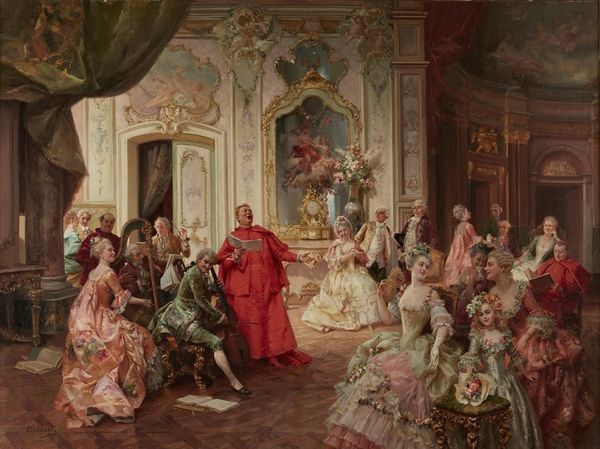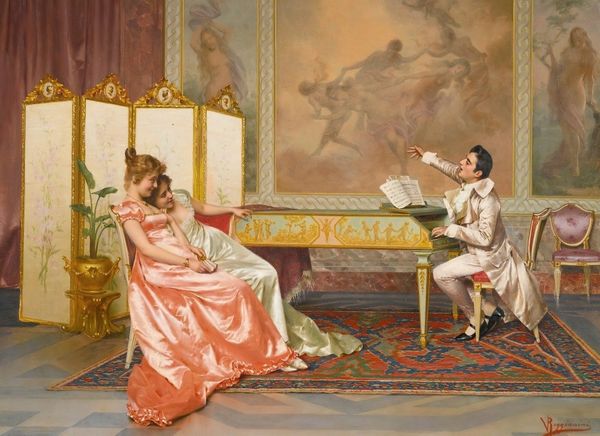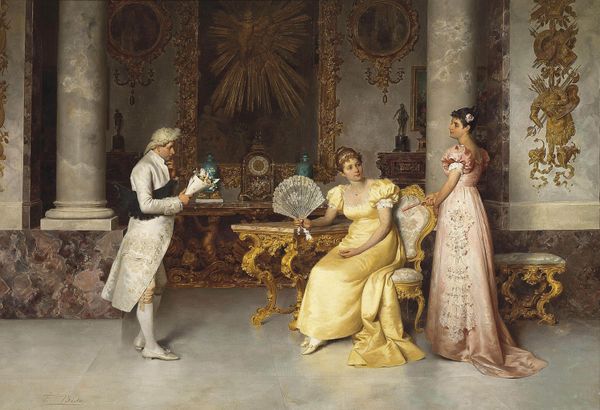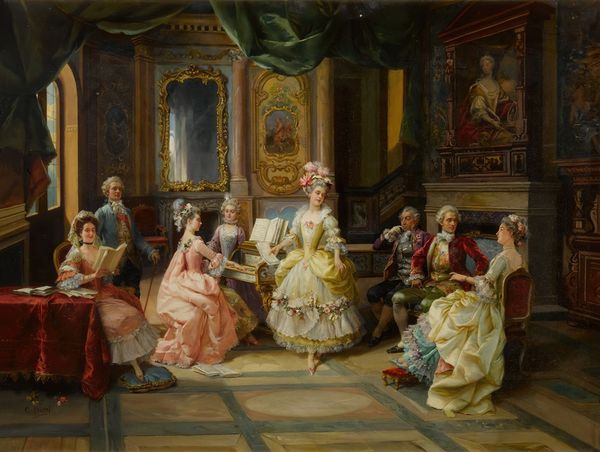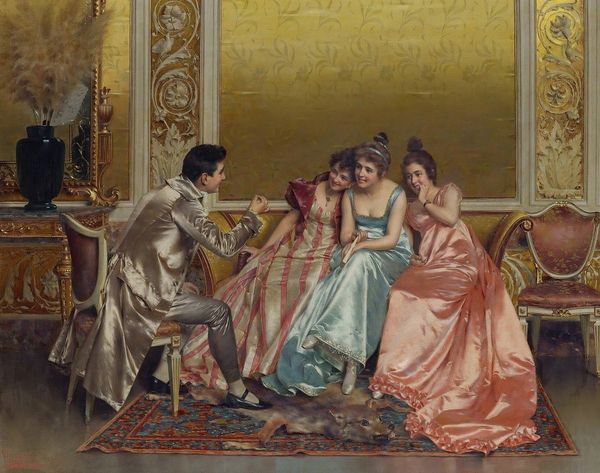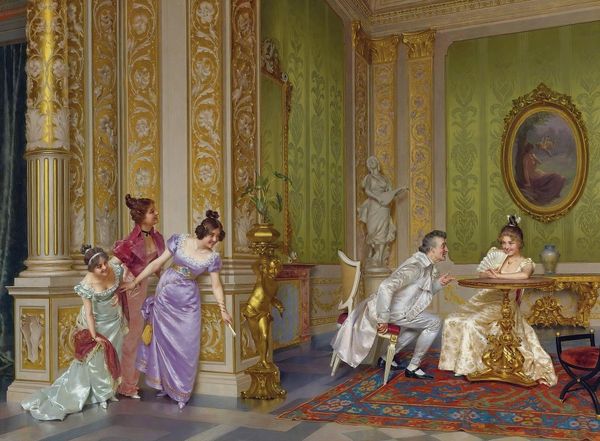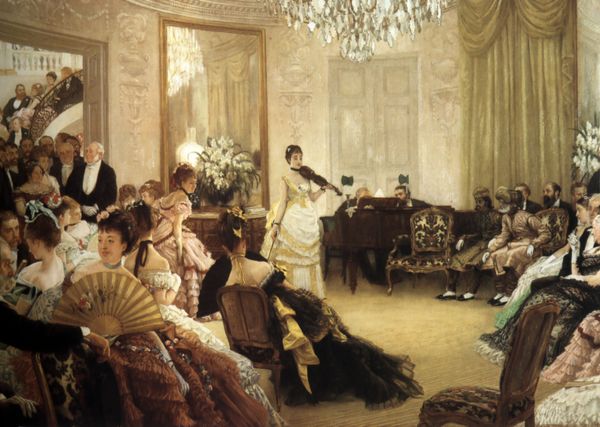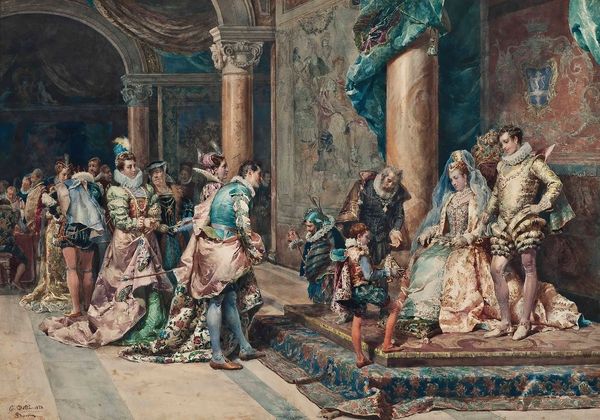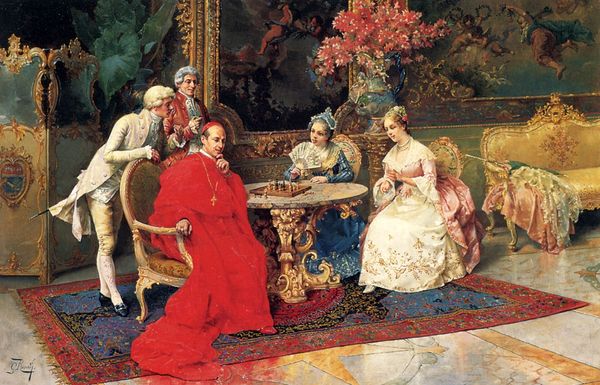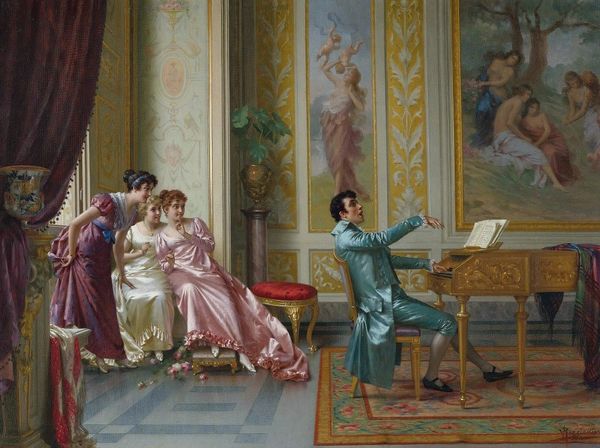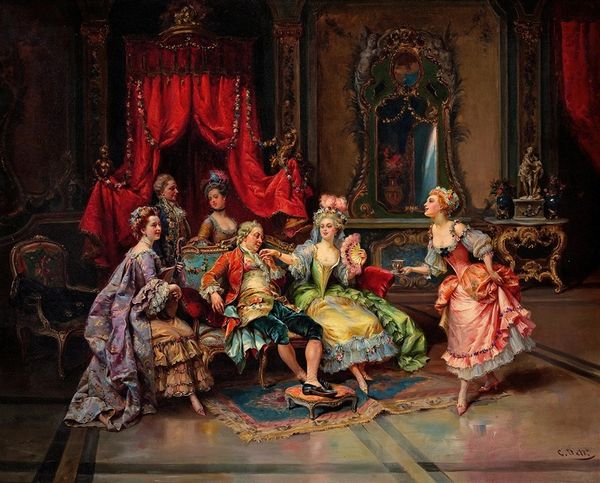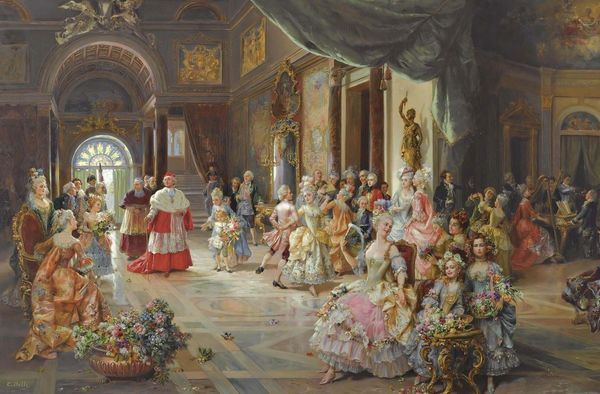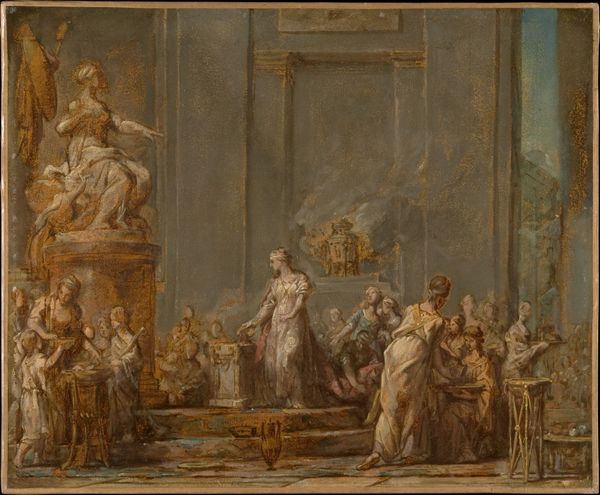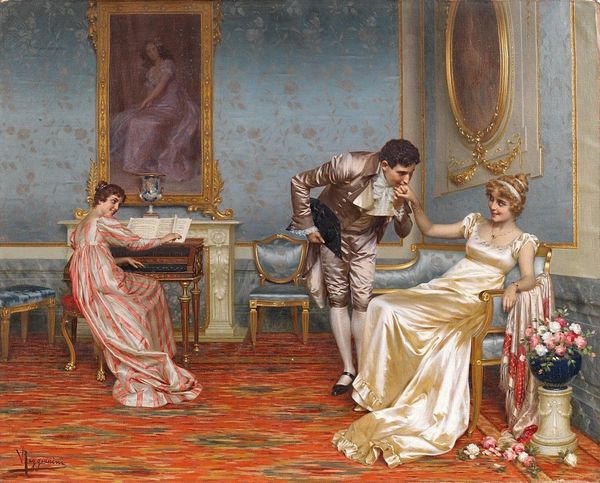
painting, oil-paint
#
conversation-piece
#
portrait
#
painting
#
modern-moral-subject
#
oil-paint
#
perspective
#
figuration
#
historical fashion
#
group-portraits
#
genre-painting
#
history-painting
#
academic-art
#
realism
Dimensions: 81.3 x 143.5 cm
Copyright: Public domain
Curator: Upon viewing, my initial impression is of staged elegance, as if we're witnessing a societal performance carefully captured in paint. Editor: Precisely. Here we have an oil on canvas painting titled "A Game of Billiards" by Francesco Beda. Though undated, we can situate it within the late 19th-century vogue for genre scenes depicting upper-class leisure. It’s part of a larger phenomenon of art that idealized aristocratic life. Curator: Absolutely. Billiards, in this context, it becomes a loaded symbol, doesn't it? Beyond a simple game, it's about power, control, and social maneuvering. The players, meticulously dressed, represent different aspects of this privileged society. Look how the cues resemble scepters. Editor: And consider the table itself, adorned with ornate carvings, elevated on twisted columns. It echoes a stage, where players act out roles dictated by wealth and status. There is the traditional iconography, of course. But there's also a potent subtext critiquing the superficiality of upper-class rituals. Curator: You see how the women almost form a decorative element in themselves? Their fashion becomes symbolic of status, elaborate hairstyles and clothing. They seem to have a different type of strategy, maybe based on gossip. What symbols or status statements could those objects relay? Editor: Beda paints the lavish room as a theater, highlighting its decorative excesses with its elaborate ornamentation, like that massive chandelier hanging overhead. I notice those clusters of portraits in the background too. The presence of ancestors serves to further legitimize their present indulgences. They signal that the space they occupy is earned from predecessors, while subtly acknowledging how contingent this legacy actually is. Curator: Indeed. Beda is subtly posing questions. How sustainable is this elaborate lifestyle? At what cost does this society exist? And is this game really just a frivolous amusement, or a symbolic reflection of much higher stakes? Editor: What strikes me most now is how Beda prompts the viewer to participate in judging that world, just as that room has its own participants watching others maneuver across its staged dimensions. Thank you for pointing out these details that add so many layers of meaning to Beda’s historical conversation.
Comments
No comments
Be the first to comment and join the conversation on the ultimate creative platform.
